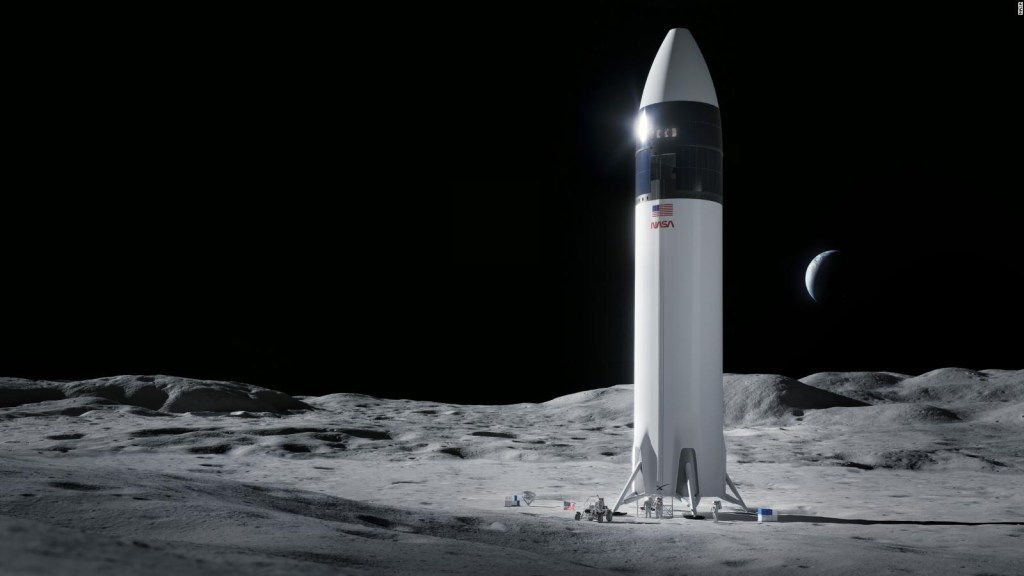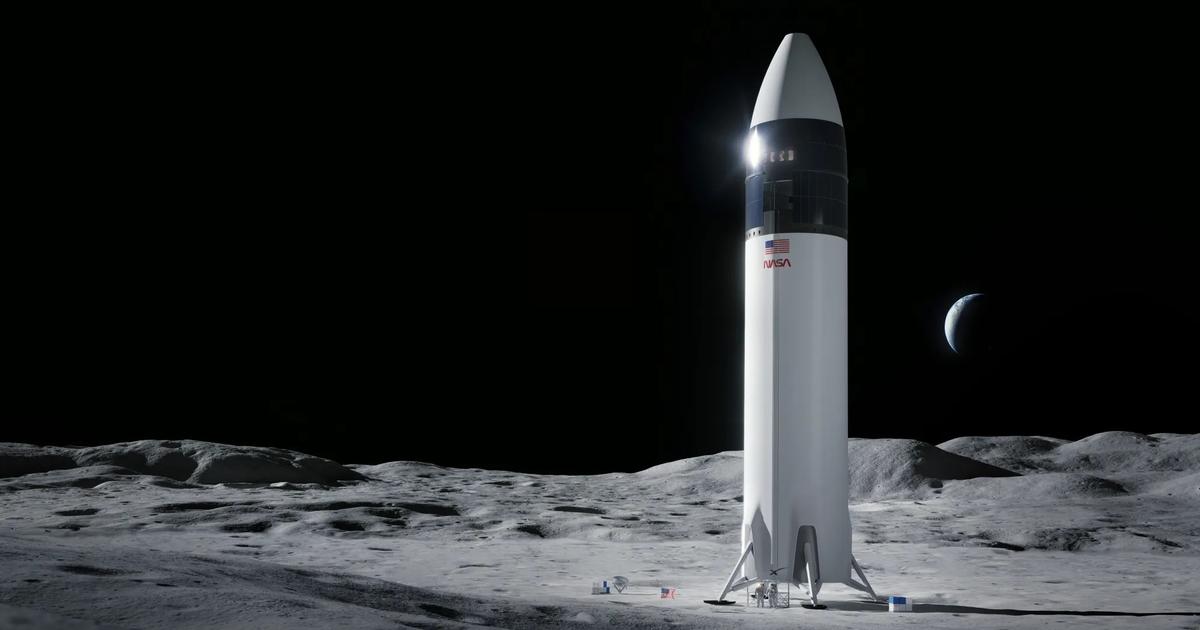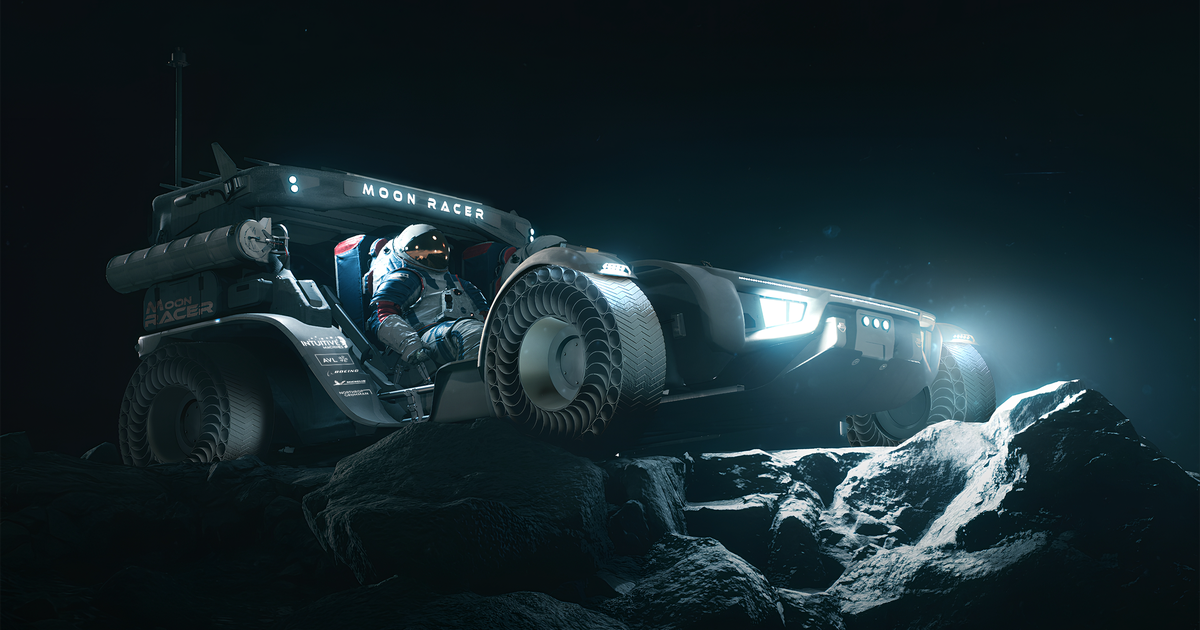Do humans return to the Moon?
That's right Artemis I 3:25
Kennedy Space Center, Fla. (CNN) --
Before the first humans set foot on Mars, NASA wants to get back to the lunar surface, but in a way we've never explored the natural satellite before.
The launch of the uncrewed Artemis I mission on Monday, August 29, is just the first step toward the future of space exploration.
The last manned moon landing, Apollo 17, took place nearly 50 years ago.
The record from the last Apollo mission for the longest manned flight in deep space still stands: 12.5 days.
Through the Artemis program, which aims to land humans on the uncharted lunar south pole and eventually on Mars, astronauts will undertake long-duration deep space missions that will test all limits of exploration.
The Artemis I mission is ready to go to the Moon: what is its goal?
"We're going back to the Moon to learn how to live, how to work, how to survive," NASA Administrator Bill Nelson said during a news conference earlier this month.
advertising
"How do you keep humans alive in those hostile conditions? And we're going to learn how to use the resources of the Moon so we can build things in the future as we go, not a quarter of a million miles, not a trip three days, but millions and millions of miles in a journey of months and months, if not years.
NASA astronaut Randy Bresnik discussed the importance of using lunar exploration as a way to prepare for landing on Mars during a NASA briefing on Saturday.
When camping in the Alaskan wilderness, you don't trust new gear and shoes that haven't been worn yet, he said.
Mars is also not the right place to try out new equipment for the first time.
"We're going to go to some local places a little closer first," Bresnik said.
"Then you can go home if your shoelaces break or something."
New NASA posters show different stages of Artemis I's journey.
Astronauts have been living and working aboard the International Space Station for more than 20 years, circling more than 400 kilometers above the planet in low-Earth orbit.
Their experiences, which can last between six months and almost a year, have revealed how the microgravity environment affects the human body.
"Every day that I personally spent on the space station, I thought of as a walk on Mars," said NASA astronaut Reid Wiseman, chief of the Astronaut Office at Johnson Space Center in Houston.
"That's why we're up there. We're trying to improve life on Earth and we're trying to expand humanity in our solar system."
How to watch the launch of the Artemis I mission to the Moon
In Artemis II, scheduled for 2024, astronauts will follow a trajectory similar to that of Artemis I, circling the Moon at a greater distance than any of the Apollo missions.
Artemis III, scheduled for late 2025, will land the first woman and next man on the satellite's south pole, where permanently shadowed regions may harbor ice and other resources that could sustain astronauts during long moonwalks. .
"Our moon basically serves as a celestial library right next to it," said Jacob Bleacher, NASA's chief exploration scientist.
"Moon rocks and moon ice basically serve as the books in this library. We can use them to begin to reveal how the solar system has evolved. This can help us understand what was happening here on Earth when life was taking hold in the solar system." solar".
The Artemis program involves the establishment of a sustained human presence on the Moon and the installation of an orbiting lunar outpost called the Gateway.
This illustration shows the design of SpaceX's Starship, which will carry NASA's first astronauts to the surface of the Moon through the Artemis program.
"We want to stay on the lunar surface and learn on the lunar surface so we can get the most science out of how we're going to get to Mars," said Jim Free, associate administrator for the Exploration Systems Development Mission Directorate at POT.
"In [the] Apollo program, we did some amazing science at the equator. This time, we're going to the south pole."
Over time, the SLS rocket will evolve, Nelson said.
When the Artemis IV mission arrives at the launch pad later this decade to dock with the Gateway, the rocket will be taller and even more powerful than the version set to launch this August.
Artemis I is a test mission, Nelson stressed.
It serves for the maiden flight of the Space Launch System rocket, the Orion spacecraft and its heat shield, as well as protective gear for future astronauts and measurement of radiation exposure.
A series of science experiments and technology demonstrations inside Orion and flying out of it on small satellites called CubeSats will gather additional data about the space environment future Artemis astronauts will face.
Lessons learned from Artemis I, to be gleaned when it returns in October, could inform the next steps of the Artemis program.
Currently, the first five Artemis missions have been planned, and NASA is working out the details for missions six through 10, Free said.
The launch of the Artemis mission could guarantee NASA an early victory in the lunar race against China
NASA teams "review overall exploration goals and then narrow down the architecture that will get us to Mars," Free said.
"We plan to put that architecture, the decisions and the process in place early next year."
The goal of putting humans on Mars by 2033 was set by the Obama administration, and NASA administrators have maintained the goal ever since.
"With the launch of Artemis I on Monday, NASA stands at a historic turning point, poised to launch the most important series of human exploration and science missions in a generation," said Bhavya Lal, NASA associate administrator. for technology, policy and strategy.
ArtemisMoonMarsNASA






/cloudfront-eu-central-1.images.arcpublishing.com/prisa/Q2GFUQLBLVDFDE4G6U6GH2UFJE.png)





/cloudfront-eu-central-1.images.arcpublishing.com/prisa/KMEYMJKESBAZBE4MRBAM4TGHIQ.jpg)


